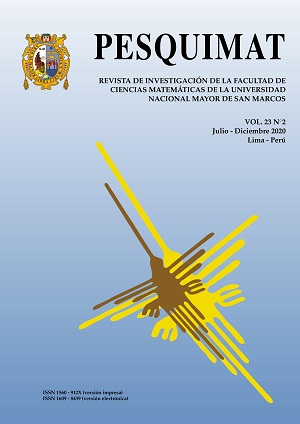Relationship between digital culture and autonomous learning in general studies students of a private university from Lima
DOI:
https://doi.org/10.15381/pesquimat.v23i2.19344Keywords:
digital culture, Autonomous Learning, critical thinkingAbstract
The health crisis generated by COVID-19 has changed all our ways of life, including those that are linked to education, going from a teaching presence to a virtual one and that has highlighted the need to advance signicantly in the incorporation of the new technologies in the educational process. In this scenario, the present research aimed to determine the correlations between digital culture and autonomous learning in students of the rst years of a private university in Lima during 2020. For this purpose, a research design was used non-experimental of correlational scope. The study sample was probabilistic and consisted of a total of 352 students, who were administered two assessment instruments: Marina Kriscautzky's digital culture inventory and Mercedes López-Aguado's autonomous learning questionnaire. The statistical results achieved show the existence of signicant and positive correlations between both variables (r = 0,83), as well as signicant correlations between the various dimensions of digital culture and the various dimensions of autonomous learning.
Downloads
Published
Issue
Section
License
Copyright (c) 2020 Elizabeth Cosi Cruz, Carlos Alberto Peña Miranda, Melanio Sempertegui Gonzales

This work is licensed under a Creative Commons Attribution-NonCommercial-ShareAlike 4.0 International License.
THE AUTHORS RETAIN THEIR RIGHTS:
a) The authors retain their trademark and patent rights, and also on any process or procedure described in the article.
b) The authors retain the right to share, copy, distribute, execute and publicly communicate the article published in Pesquimat magazine (for example, place it in an institutional repository or publish it in a book), with recognition of its initial publication in the Pesquimat magazine.
c) The authors retain the right to make a later publication of their work, to use the article or any part of it (for example: a compilation of their works, notes for conferences, thesis, or for a book), provided that they indicate the source of publication (authors of the work, magazine, volume, number and date).






